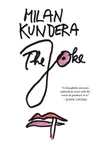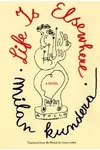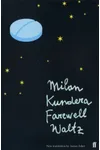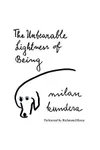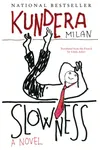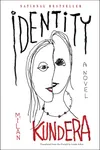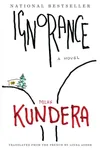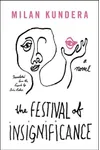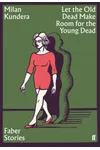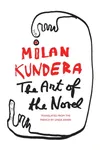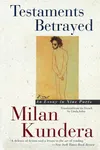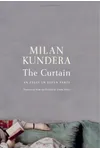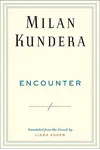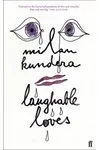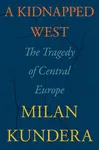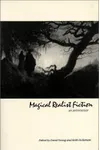Picture a Czech storyteller who wove philosophy, love, and politics into unforgettable novels—meet Milan Kundera! His masterpiece, The Unbearable Lightness of Being, redefined modern literature with its soul-stirring questions about life’s weight and freedom. From his exile in France to global acclaim, Kundera’s stories captivate with their wit and wisdom, inviting readers to ponder the human condition.
Born in a turbulent era, Kundera’s journey from Czechoslovakia to the world stage is as compelling as his novels. His unique blend of storytelling and existential inquiry makes him a literary giant whose work feels as fresh today as ever.
The Making of Milan Kundera
Milan Kundera was born on April 1, 1929, in Brno, Czechoslovakia, into a cultured family where music and literature thrived. His father, a musicologist, sparked his early love for art, while the political upheaval of post-war Europe shaped his worldview. Kundera studied literature and aesthetics at Charles University in Prague, later diving into film and music theory. Initially a poet and playwright, he joined the Communist Party in his youth, only to be expelled twice for his independent spirit, a tension that would echo in his writing.
By the 1960s, Kundera turned to novels, crafting stories that questioned authority and explored personal freedom. His early works gained attention, but the Soviet invasion of Czechoslovakia in 1968 forced him to flee to France in 1975, where he embraced exile and a new chapter as a French citizen.
Milan Kundera’s Unforgettable Stories
Kundera’s novels are a dazzling mix of philosophy, romance, and political satire. His most famous work, The Unbearable Lightness of Being (1984), follows four characters navigating love and identity against the backdrop of the Prague Spring. Its meditation on ‘lightness’ versus ‘weight’—the fleeting versus the eternal—resonates deeply, blending humor with profound insight.
Other gems include The Book of Laughter and Forgetting (1979), a playful yet poignant exploration of memory and history, and Immortality (1990), which weaves together fictional and historical figures to probe fame and existence. Kundera’s style is distinctive: he breaks the fourth wall, muses on his characters, and infuses irony, creating a conversational yet intellectual tone that feels like a chat with a wise friend.
Translated into dozens of languages, his works transcend borders, offering timeless reflections on love, power, and the absurdities of life. Kundera’s refusal to shy away from big questions makes his stories both intimate and universal.
Why Milan Kundera Matters
Milan Kundera’s impact on 20th-century literature is profound. His ability to blend personal stories with political and philosophical themes opened new doors for novelists. Exiled from his homeland, he became a voice for those grappling with identity and freedom in oppressive systems, resonating with readers worldwide. His work influenced writers like Salman Rushdie and inspired adaptations, including the 1988 film of The Unbearable Lightness of Being.
Kundera’s legacy endures through his fearless exploration of what it means to be human. His novels challenge readers to question their choices and embrace life’s contradictions, making him a timeless figure in global literature.
- Born: April 1, 1929, Brno, Czechoslovakia
- Key Works: The Unbearable Lightness of Being, The Book of Laughter and Forgetting, Immortality
- Notable Awards: Jerusalem Prize (1985), Czech Medal of Merit (1995)
Snag The Unbearable Lightness of Being and dive into Milan Kundera’s brilliant world of ideas and emotions!
